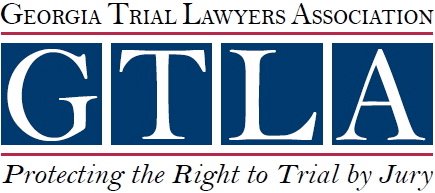While many individuals are familiar with the process of seeking compensation for property damage and medical expenses following an accident, diminished value claims often go overlooked. However, these claims can have a significant impact on the financial well-being of vehicle owners.




What are Diminished Value Lawsuits?
Diminished value lawsuits arise when a vehicle suffers damage in an accident, resulting in a reduction in its resale value even after repairs have been made. While traditional property damage claims seek to cover the cost of repairs to restore a vehicle to its pre-accident condition, diminished value claims focus on the inherent loss of value that occurs due to the vehicle’s history of damage.
In other words, even if a vehicle is repaired to a high standard, it may still be worth less on the resale market than a similar vehicle with no history of damage. Diminished value lawsuits seek to compensate vehicle owners for this loss of value, which can have a significant financial impact — especially if the owner plans to sell or trade in the vehicle in the future.
Key Concepts in Diminished Value Lawsuits
Inherent diminished value refers to the reduction in a vehicle’s resale value due to its history of damage, regardless of the quality of repairs. Even if a vehicle is restored to a like-new condition, its accident history can still cause it to be worthless on the market.
Repair-related diminished value occurs when the quality of repairs impacts the vehicle’s resale value. This can happen if the repairs are not done to a high standard or if aftermarket parts are used instead of original equipment manufacturer (OEM) parts.
Comparative negligence is a legal principle in some states where the amount of compensation for diminished value may be reduced if the vehicle owner is found to be partially at fault for the accident. In Georgia, for example, an owner may still be entitled to some compensation for diminished value even if they are partially at fault.
Legal Principles in Diminished Value Lawsuits
Legal principles underpinning diminished value lawsuits primarily draw from tort law, which addresses civil wrongs such as negligence, recklessness, or intentional misconduct. For a plaintiff to prevail in a diminished value lawsuit, they must demonstrate that the defendant’s actions or negligence directly caused damage to the vehicle, resulting in a loss of its value.
Determining the extent of diminished value can be complex and often requires the experience of appraisers, automotive experts, or economists. Various factors, including the vehicle’s age and mileage, the severity of the damage, and prevailing market conditions, must be considered to accurately assess the compensation owed to the vehicle owner.
Diminished value lawsuits, like other civil claims, are subject to statutes of limitations that set deadlines for filing a lawsuit. In Georgia, for example, the statute of limitations for property damage claims, including diminished value claims, is generally four years from the date of the accident.
These lawsuits offer vehicle owners a legal avenue to seek compensation for the loss of value resulting from accident-related damage. By understanding the relevant legal principles and key concepts, individuals can safeguard their rights and pursue fair compensation for their losses.
Proving Your Diminished Value Claim
There are certain key elements that must be proven to succeed in a diminished value lawsuit.
Negligence or Fault
In a diminished value lawsuit, the first thing that needs to be proven is that another party was negligent or at fault for the accident that caused damage to your vehicle. This may involve demonstrating that the other driver violated traffic laws, acted recklessly, or failed to exercise reasonable care, leading to the collision.
Causation
Once negligence or fault has been established, the next step is to prove causation — that is, that the damage to your vehicle was directly caused by the accident in question. This may involve providing evidence such as photos of the accident scene, witness statements, police reports, and expert testimony from accident reconstruction specialists.
Inherent Diminished Value
You must also prove that your vehicle has suffered inherent diminished value as a result of the accident. This means demonstrating that, even after repairs have been made, your vehicle is worth less on the resale market due to its history of damage.
Repair-Related Diminished Value
In some cases, you may also be able to recover compensation for repair-related diminished value, which occurs when the quality of repairs affects the resale value of your vehicle. This may involve providing evidence that repairs were not completed to a high standard or that aftermarket parts were used instead of original equipment manufacturer (OEM) parts.
Quantifying Damages
Finally, you’ll need to quantify the amount of diminished value that you’re entitled to recover. This may involve obtaining appraisals, automotive expert opinions, or market analyses to determine the difference in value between your vehicle before and after the accident. Factors such as the age, make, model, mileage, and extent of damage to your vehicle will all be taken into account when calculating damages.
Representative Cases
The Difference Between Diminished Value and Property Damage Lawsuits
Property damage lawsuits focus on compensating vehicle owners for the cost of repairs to restore their vehicle to its pre-accident condition. These lawsuits seek reimbursement for the actual cost of repairs, including labor, parts, and other expenses associated with restoring the vehicle to its original state.
Key Points of Property Damage Lawsuits
Property damage lawsuits are primarily concerned with compensating vehicle owners for the expenses associated with repairing their vehicles to their pre-accident condition. These claims address the physical damage sustained by the vehicle during the accident, such as dents, scratches, and structural issues. Owners can seek reimbursement for the actual cost of repairs, which includes parts, labor, and any other related expenses incurred as a result of the accident.
Key Difference vs Diminished Value Cases
The primary difference between diminished value and property damage lawsuits lies in the focus of the claim. Diminished value lawsuits seek to compensate vehicle owners for the loss of resale value that occurs due to the vehicle’s accident history, while property damage lawsuits focus on reimbursing owners for the cost of repairs to restore the vehicle to its pre-accident condition.
Understanding the differences between diminished value and property damage lawsuits is crucial for vehicle owners seeking compensation after an accident. If you’ve been involved in an accident and are unsure about the best course of action, it’s essential to consult with an experienced civil lawyer who can evaluate your case and help you pursue the compensation you deserve.
Hiring a Personal Injury Attorney How Long Will a Personal Injury Case Take?Related Videos
At Princenthal, May & Wilson, we understand the complexities and nuances of diminished value claims, and we’re here to provide you with the guidance, advocacy, and representation you need to pursue fair compensation for your losses.
If you’ve been involved in an accident and believe you may be entitled to compensation for diminished value, don’t hesitate to contact us. Our experienced team of attorneys has the knowledge, experience, and resources to help you navigate the legal process effectively and seek the compensation you deserve.
But our services don’t stop there. If you’re facing personal injury or property damage issues arising from an accident, our firm is here to help. Whether you’re seeking compensation for medical expenses, lost wages, pain and suffering, or property damage repairs, we’ll work tirelessly to protect your rights and pursue the best possible outcome in your case.
Don’t let the complexities of the legal system overwhelm you. Contact Princenthal, May & Wilson today to schedule a consultation and learn how we can assist you in seeking justice and fair compensation for your losses. With our dedicated team by your side, you can navigate the challenges ahead with confidence and peace of mind.
Stay informed, stay empowered, and take action to protect your rights. Contact us now and let us be your advocates in the pursuit of justice.





